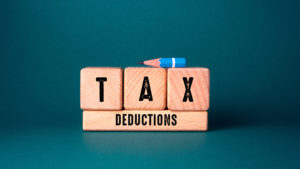Understanding Income Tax Deductions: A Guide for Taxpayers
Understanding Income Tax Deductions: A Guide for Taxpayers
Income tax deductions play a significant role in reducing the amount of taxes you pay. They are expenses that can be subtracted from your income to arrive at your taxable income, thus reducing your tax liability. However, navigating the complicated world of tax deductions can be overwhelming. In this guide, we’ll help you understand what income tax deductions are, how they work, and how to maximize them to reduce your tax bill.
Types of Income Tax Deductions
There are two types of income tax deductions: standard deductions and itemized deductions. The standard deduction is a fixed amount that varies according to your filing status. It is a no-questions-asked deduction that automatically reduces your taxable income. Itemized deductions, on the other hand, are specific expenses that you have incurred during the tax year. These expenses are reported on Schedule A (Form 1040) and are subject to certain limits and conditions.
Qualifying for Income Tax Deductions
To qualify for income tax deductions, you must meet certain criteria. For instance, you must have incurred the expenses during the tax year, and the expenses must be necessary and ordinary. Additionally, some expenses may be subject to certain limits and restrictions. Examples of items that may be deductible include mortgage interest, property taxes, medical expenses, charitable donations, and self employed health insurance expenses.
Maximizing Income Tax Deductions
Maximizing your income tax deductions requires planning and attention to detail. One strategy is to bunch your deductions. This involves timing your payments so that you have more expenses in one year and fewer in the next. By doing this, you can potentially itemize your deductions in the high-expense year and take the standard deduction in the low-expense year. Another strategy is to contribute to a retirement account, such as an IRA or 401(k). This not only helps reduce your taxable income but also can grow tax-free over time.
Recordkeeping for Income Tax Deductions
Keeping accurate records of your expenses is essential when trying to maximize income tax deductions. This includes receipts, invoices, and canceled checks. Additionally, you should maintain a log of any mileage or travel expenses incurred during the tax year. By doing so, you can easily determine which expenses are eligible for deductions and avoid the risk of missing out on some valuable tax savings.
Seek Professional Help with Income Tax Deductions
Navigating the complex world of income tax deductions can be a daunting task. Seeking the help of a tax professional can be an excellent way to ensure that you are getting all the deductions you are entitled to. Tax professionals not only have an in-depth understanding of the tax code, but they can also help you file your taxes accurately and in a timely fashion. Their knowledge and expertise can be invaluable when trying to minimize your tax bill.
In conclusion, income tax deductions can significantly reduce your tax bill and require careful planning and attention to detail. Knowing what expenses can be deducted, how to qualify for deductions, and how to maximize them can result in significant savings. By keeping accurate records, timing your payments, contributing to retirement accounts, and seeking the help of a tax professional, you can potentially save a significant amount of money each year. Don’t let the complicated world of income tax deductions intimidate you. With a little bit of effort and know-how, you can keep more of your hard-earned money in your pocket.

